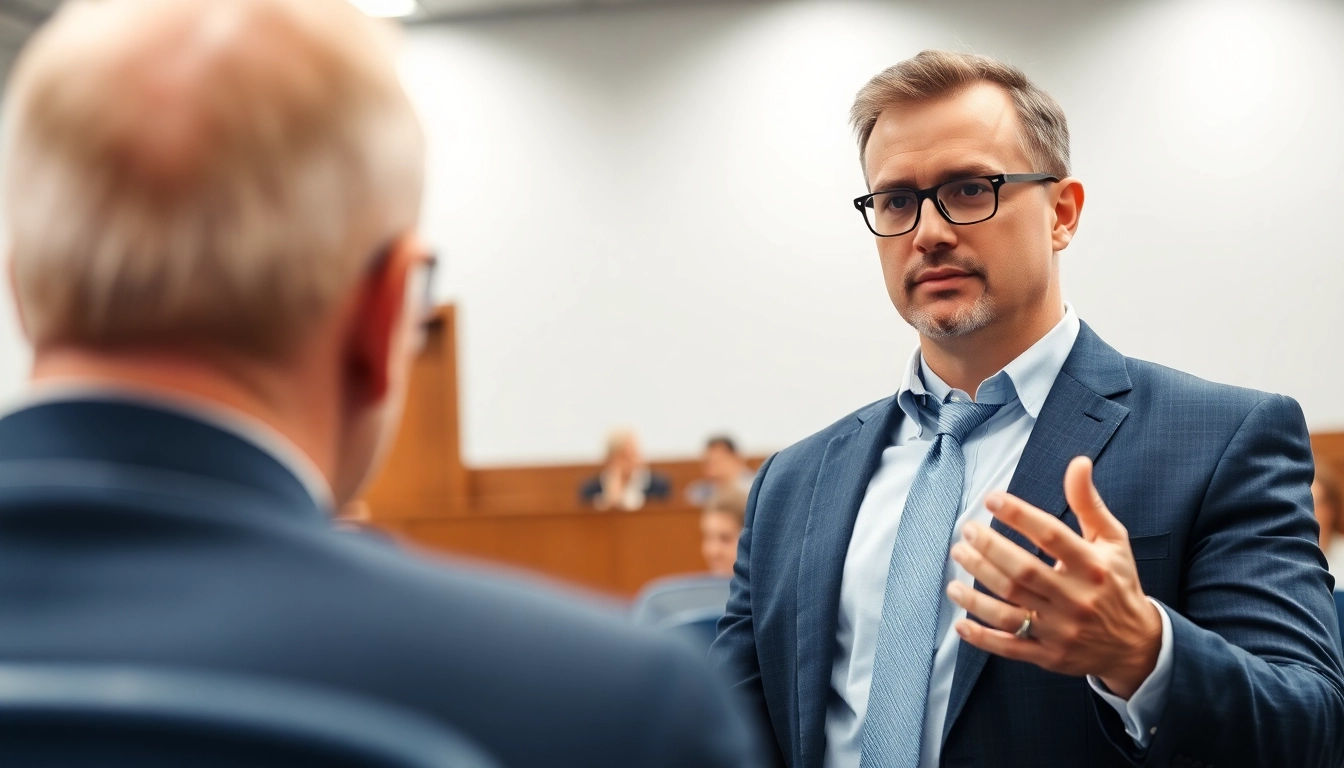
Understanding Florida Car Accident Laws
Overview of Car Accident Liability in Florida
Car accidents can be devastating, not only causing physical injuries but also emotional and financial turmoil. Understanding car accident liability in Florida is crucial for residents involved in accidents. Florida follows a no-fault insurance system, which means that after an accident, each driver’s insurance company pays for their injuries regardless of who caused the accident. This approach aims to reduce the number of lawsuits resulting from minor accidents and allows for quicker compensation for medical expenses.
However, the no-fault system does have its intricacies. In Florida, drivers are required to carry Personal Injury Protection (PIP) insurance, which covers up to $10,000 in medical expenses after an accident. The limitation of the no-fault system comes into play when serious injuries are evident. In such cases, injured parties can step outside of the no-fault framework and pursue claims against the at-fault driver, potentially leading to greater compensation for damages such as pain and suffering. To navigate these laws effectively, many Florida residents seek the advice of Florida car accident attorneys to ensure their rights and interests are adequately protected.
Key Statutes Affecting Car Accident Claims
Several statutes within Florida state law significantly influence car accident claims. One of the central laws is Florida Statute 627.736, which governs PIP insurance requirements. This statute mandates that all drivers get PIP coverage and outlines the benefits offered, making it crucial for victims to understand how to utilize their benefits post-accident.
Additionally, Florida’s comparative negligence law, specified under Florida Statute 768.81, contributes to determining the distribution of damages if both parties share blame for the accident. If a driver is found to be partially at fault, their compensation can be reduced based on their percentage of fault. This statute emphasizes the importance of gathering all necessary evidence, including witness statements and police reports, to establish a solid case. Understanding these statutes and their implications is vital for individuals seeking recovery for their damages following an accident.
What to Expect in the Legal Process
The legal process following a car accident can feel overwhelming, especially for those unfamiliar with the system. Upon hiring a Florida car accident attorney, the first step usually involves collecting all pertinent evidence, including medical records, accident reports, and any correspondence with insurance companies. Attorneys aim to build a comprehensive case that details the accident, its impact on the victim’s life, and the financial damages they have incurred.
After gathering evidence, negotiations with insurance adjusters usually commence, with attorneys advocating for fair compensation based on the damages sustained. If an agreement cannot be reached, the case may move to litigation, where a formal lawsuit is filed, and the matter is taken to court. Understanding the stages of this process, along with timelines and court expectations, can help individuals feel more prepared and informed as they pursue their claims.
Choosing the Right Florida Car Accident Attorney
Essential Qualities to Look For
Selecting the right attorney is crucial for success in a car accident claim. Some essential qualities to look for include experience and specialization in personal injury law, particularly in car accident cases. An attorney with a proven track record in handling similar cases will be more adept at navigating the complexities of Florida laws and maximizing compensation. Additionally, strong communication skills are necessary, as they should be able to explain legal terminology in a way that clients can understand and should maintain transparency throughout the process.
Another critical quality is a strong reputation in the community, which can often be confirmed through client reviews and testimonials. A reputable attorney will have positive feedback from prior clients, demonstrating their commitment to securing optimal outcomes. Lastly, they should offer personalized attention, making clients feel supported and prioritized throughout the legal journey.
Questions to Ask During Initial Consultations
Initial consultations provide an excellent opportunity to gauge whether an attorney is the right fit for your case. When meeting potential lawyers, consider asking the following questions:
- What experience do you have handling cases similar to mine?
- What is your approach to communication throughout the case?
- Can you provide examples of successful outcomes in past cases?
- What are your fees, and how is payment structured?
- How long do you anticipate the case to take?
- What challenges do you foresee in my case?
These inquiries allow clients to understand the attorney’s strategy, experience, and overall compatibility with their own expectations and needs.
Evaluating Attorney Track Records and Reviews
Researching an attorney’s track record can significantly influence the decision-making process. Prospective clients should look for lawyers with a history of achieving settlements or verdicts that reflect their clients’ best interests. Accessing online review platforms can also help in evaluating attorneys’ reputations, as previous clients typically share their experiences and satisfaction levels.
Checking an attorney’s standing with the Florida Bar Association can provide additional insights into their professional conduct and any disciplinary actions that may have occurred. All these factors combined enable individuals to make informed decisions about which attorney is best suited for their car accident claim.
Common Types of Car Accidents in Florida
Rear-End Collisions and Their Impact
Rear-end collisions are among the most common types of car accidents in Florida. These accidents often occur when a driver is not paying full attention to the road, leading to one vehicle striking another from behind. These types of accidents can cause severe injuries, particularly to the neck and spine, resulting in conditions such as whiplash and more serious injuries that require long-term medical treatment.
In many rear-end collision cases, liability tends to fall on the driver who struck the other vehicle. However, various factors can complicate these cases, including the behavior of the driver who was hit or road conditions at the time of the accident. Understanding the specific circumstances and gathering evidence will be crucial in establishing fault and pursuing compensation for injuries and damages.
Understanding Hit-and-Run Incidents
Hit-and-run accidents, where a driver leaves the scene of the accident without providing their information or assisting the injured party, pose unique challenges within Florida car accident claims. The victim faced with such circumstances may feel helpless, but several steps can still be taken. First, reporting the incident to local authorities is essential, enabling them to investigate and perhaps locate the offending driver through witness statements and surveillance footage.
Moreover, victims can explore their PIP insurance coverage for medical expenses incurred from the accident. If the at-fault driver is later identified, additional compensation may be pursued through liability claims. Understanding the process surrounding hit-and-run incidents can empower victims to take necessary actions and protect their rights, despite the challenges.
Motorcycle and Pedestrian Accident Cases
Motorcycle and pedestrian accidents highlight the particular vulnerabilities of these road users on Florida streets. Florida, known for its warm climate, sees a high volume of motorcycle riders and pedestrians. Unfortunately, this also leads to a significant number of accidents involving these individuals, often resulting in severe injuries or fatalities due to the lack of protective barriers that standard vehicles provide.
When pursuing a claim stemming from a motorcycle or pedestrian accident, establishing fault can often be complicated, especially in cases where distracted driving or impairment may have played a role. Furthermore, insurance coverage issues may arise, especially if the injured party lacks appropriate coverage. Conducting a thorough investigation and collecting robust evidence is essential to building a solid case, highlighting the necessity of engaging experienced attorneys who ascribe to best practices in handling such sensitive circumstances.
Navigating Insurance Claims After an Accident
How to File a Claim Effectively
Filing an insurance claim after a car accident in Florida is a critical step in recovering from damages. To file an effective claim, it’s essential to gather all necessary documentation immediately following the accident. This should include accident reports, medical bills, receipts for car repairs, and any evidence of lost wages due to the accident. The more organized and detailed the information provided to the insurance company, the smoother the claims process will typically proceed.
Additionally, understanding the time constraints associated with filing claims in Florida is vital. Generally, PIP claims should be filed within 14 days of the accident to ensure coverage for medical expenses. Engaging an attorney early in the process may provide added assistance, ensuring no crucial steps are overlooked in navigating each stage of the claims process.
Understanding PIP Coverage in Florida
PIP coverage is an essential aspect of car insurance in Florida. As noted, this type of insurance is designed to provide medical coverage for injuries sustained in an accident without determining fault. Understanding the limits and stipulations of PIP coverage is critical for any driver in Florida. While it effectively covers medical expenses up to $10,000, it may not cover all damages incurred from serious accidents, such as lost wages or non-economic damages like pain and suffering.
Individuals may find that their personal injury cases require additional claims for compensation once their PIP coverage is exhausted, particularly if they sustain severe injuries. It’s imperative to consult with experienced Florida car accident attorneys to explore these complexities and ensure a robust understanding of available options for full compensation after an accident.
Challenges in Dealing with Insurance Adjusters
Interacting with insurance adjusters can be daunting for many accident victims. Adjusters are trained to minimize claims payouts, which can result in frustrating negotiations for those unfamiliar with the process. One common challenge individuals face is receiving low initial settlement offers, which may not adequately reflect the true costs associated with their injuries and damages.
Moreover, adjusters often employ various tactics to gather information that can be used to undervalue claims, such as encouraging statements that imply fault on the victim’s part. This is where having legal representation becomes invaluable. Having skilled Florida car accident attorneys on your side ensures that communications with insurance companies are handled professionally and that you receive the compensation you deserve, without being manipulated into making statements that may jeopardize your case.
Maximizing Compensation for Your Injuries
Clear Details on Economic vs. Non-Economic Damages
Understanding the distinction between economic and non-economic damages is fundamental for accident victims seeking compensation. Economic damages refer to tangible losses, such as medical expenses, property damage, and lost wages due to time taken off work for recovery. These damages can often be precisely calculated and supported by receipts, invoices, and documentation.
Conversely, non-economic damages refer to more subjective losses, including pain and suffering, emotional distress, and loss of enjoyment in life. Calculating non-economic damages becomes more complex and may require testimony from medical professionals about the long-term impact of injuries on an individual’s quality of life. Engaging experienced attorneys can bolster your case by effectively articulating these damages and securing the necessary evidence for a substantial settlement.
Importance of Medical Documentation
Medical documentation plays a vital role in the aftermath of a car accident. Thorough records detailing the extent of injuries, treatment plans, and recovery progress are essential for pursuing compensation. Physicians’ notes, diagnostic images, and treatment histories serve as primary evidence of medical expenses incurred and the impact of injuries on the victim’s daily life.
In cases involving non-economic damages, detailed medical documentation can significantly enhance claims by providing insight into the emotional and physical toll on victims. Ensuring that all medical interactions are documented, and records are maintained will create a solid foundation for a strong compensation case, further amplifying the need for thorough collaboration with healthcare providers during recovery.
Steps to Take for a Strong Compensation Case
Building a robust compensation case following a car accident involves several critical steps. First, gather all relevant evidence immediately after the accident, including photographs of the scene, witness statements, and police reports. Timely collection and preservation of this evidence will aid in establishing liability.
Second, it’s essential to maintain ongoing correspondence with medical providers and document every interaction. Keeping a journal of how injuries affect day-to-day life, helping to convey the non-economic impact of the accident, can be beneficial. Equally, consult with legal professionals to navigate the complexities of the claims process and understand the nuances of pursuing compensation effectively.
Lastly, allow enough time for recovery before settling with insurance companies, as rushing into an agreement may result in receiving inadequate compensation. Every step taken towards understanding Florida’s legal landscape surrounding car accidents can lead to maximized compensation for injured parties.







